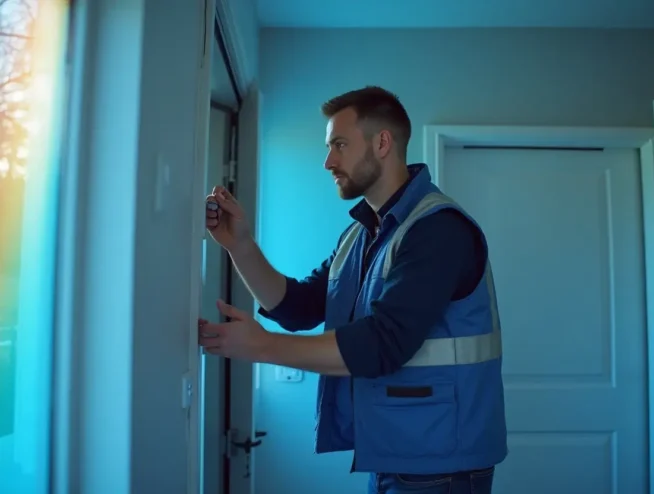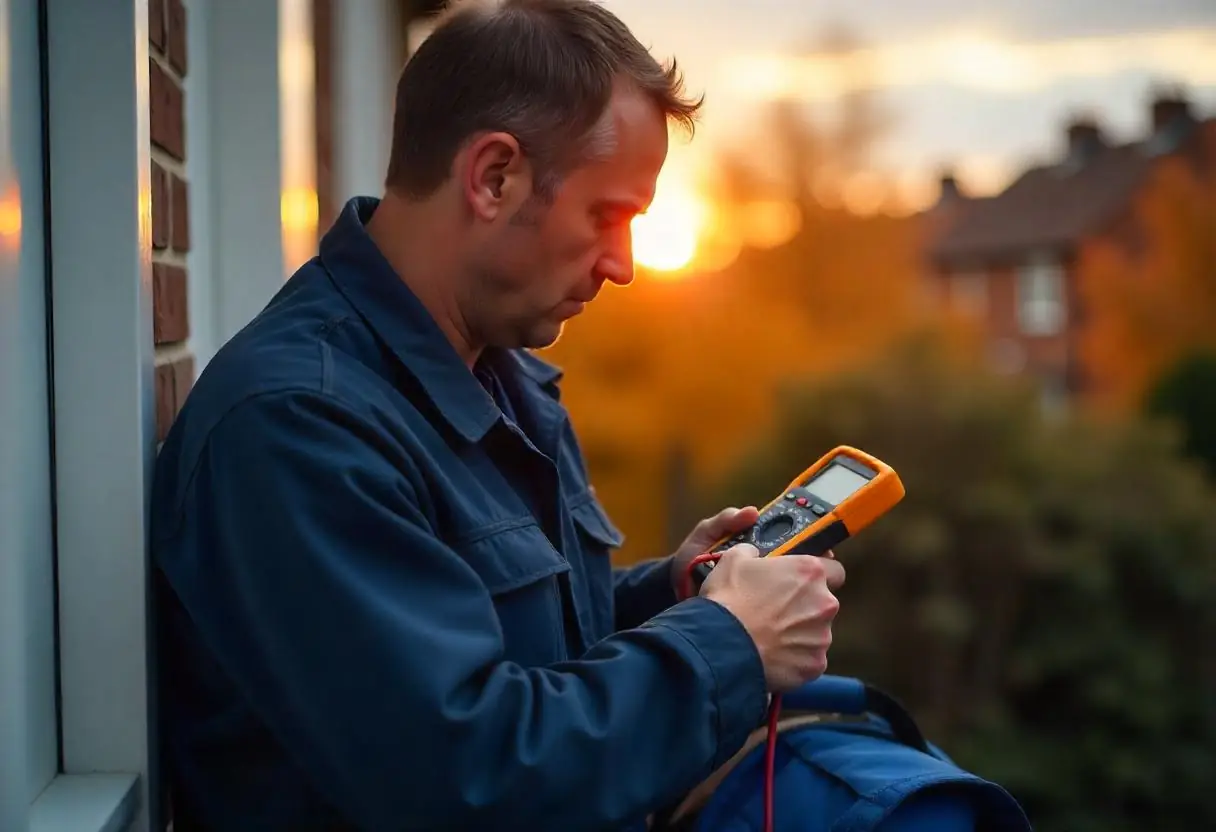What Are Electrical Safety Certificates?
Whether you’re a homeowner, landlord, or business operator, ensuring your property’s electrical systems are safe and compliant with UK regulations is vital. One of the key ways to do this is through the use of electrical safety certificates. But what exactly are they, who needs them, and why are they so important?
In this article, we’ll break down everything you need to know about electrical safety certificates, including the different types, legal requirements, and how to obtain one from a qualified professional like those at Bedford Electrician.
What Is An Electrical Safety Certificate?
An electrical safety certificate is a formal document issued by a qualified electrician or electrical contractor following an inspection and testing of your electrical installations. It confirms that the electrical system is safe to use and compliant with UK safety standards, particularly those set out in the BS 7671 Wiring Regulations.
These certificates are crucial in identifying any faults or risks within a property’s electrical system and serve as an important record for homeowners, landlords, tenants, and prospective buyers.
Why Are Electrical Safety Certificates Important?
Electrical faults are one of the leading causes of house fires in the UK. Certificates ensure:
Your electrical installations are safe and functional.
You comply with UK legal requirements, particularly for rented properties.
You have evidence of inspection in case of insurance claims or legal disputes.
You’re providing a safe environment for occupants or employees.
In short, these documents are a vital part of your property’s overall safety framework.
Types Of Electrical Safety Certificates
There are several types of certificates and reports, each used in different circumstances:
1. Electrical Installation Certificate (EIC)
This certificate is issued when a new electrical installation has been carried out or a major alteration has been made to an existing installation. It’s a declaration by the electrician that the work meets BS 7671 standards.
When you might need it:
After a full house rewire
Following the installation of a new consumer unit (fuse box)
After significant modifications to circuits
2. Minor Electrical Installation Works Certificate (MEIWC)
Used when minor changes or additions are made to an existing electrical system. This certificate is less comprehensive but still confirms that the changes are safe and compliant.
Examples include:
Adding a new socket or light fitting
Extending an existing circuit
3. Electrical Installation Condition Report (EICR)
An EICR, also known as a Periodic Inspection Report, is a detailed assessment of the existing electrical installation’s condition. It is the most common form of electrical safety certification for both domestic and commercial properties.
An EICR will:
Identify safety issues or electrical faults
Assess whether installations comply with current regulations
Provide recommendations for improvement
Are Electrical Safety Certificates a Legal Requirement?
For Homeowners
Homeowners are not legally required to obtain an EICR or other certificate unless:
They are selling the property
They have had new electrical work completed
Their insurer or mortgage lender requests one
However, having a valid EICR is strongly recommended, especially for older properties, to ensure safety and avoid unexpected issues.
For Landlords
As of 1 July 2020, landlords in England are legally required to have a valid EICR carried out at least every 5 years for all rented properties.
The landlord must:
Provide a copy of the EICR to new tenants before they move in
Provide a copy to existing tenants within 28 days of the inspection
Supply the certificate to the local authority within 7 days if requested
Failure to comply can result in fines of up to £30,000 and may invalidate insurance policies.
For Businesses
Under the Electricity at Work Regulations 1989, all employers must ensure their electrical systems are maintained in a safe condition. Although the regulations don’t specify the frequency, an EICR is typically recommended every 5 years for commercial premises.
How Often Should Electrical Systems Be Inspected?
The recommended frequency of EICRs depends on the type of property:
Owner-occupied homes: Every 10 years
Rented homes: Every 5 years
Commercial properties: Every 5 years
Industrial properties: Every 3 years
Buildings with swimming pools: Every year
In some cases, more frequent inspections may be needed based on the age of the installation, environmental conditions, or property use.
What Happens During An EICR?
When a qualified electrician performs an EICR, they will:
Visually inspect the condition of the electrical installation
Test circuits for faults, insulation resistance, polarity, and earth continuity
Assess compliance with BS 7671 regulations
Provide a report detailing observations and recommendations
The report will classify issues using the following codes:
C1: Danger present – immediate action required
C2: Potentially dangerous – urgent attention needed
C3: Improvement recommended
FI: Further investigation required
Only a certificate with no C1 or C2 issues is considered “satisfactory.”
Who Can Issue Electrical Safety Certificates?
Only electricians who are registered with a competent person scheme such as NICEIC, NAPIT, or ELECSA can issue valid electrical certificates in the UK. These professionals are fully trained, insured, and capable of performing work to a recognised standard.
At Bedford Electrician, all our electricians are fully certified and experienced in conducting EICRs, installation works, and issuing valid documentation for both residential and commercial properties.
What If My Property Fails An EICR?
If your electrical installation is deemed “unsatisfactory,” the report will outline what remedial works are required. These must be carried out by a qualified electrician, and once completed, a satisfactory report or follow-up certificate will be issued.
Landlords are legally obligated to:
Complete any remedial work within 28 days (or sooner if specified)
Provide written confirmation of the completed works to tenants and the local authority
Final Thoughts
Electrical safety certificates are a critical part of maintaining a safe and legally compliant property. Whether you are a landlord, homeowner, or business operator, staying up to date with inspections and certifications is essential to protect lives, property, and your peace of mind.
At Bedford Electrician, we offer professional and affordable electrical inspection services, including EICRs, installation certification, and advice tailored to your needs. Get in touch today to book an inspection or learn more about how we can help keep your electrical systems safe and compliant.
Need An EICR In Bedford?
Contact us or call us for a free quote.
Read More Blogs




